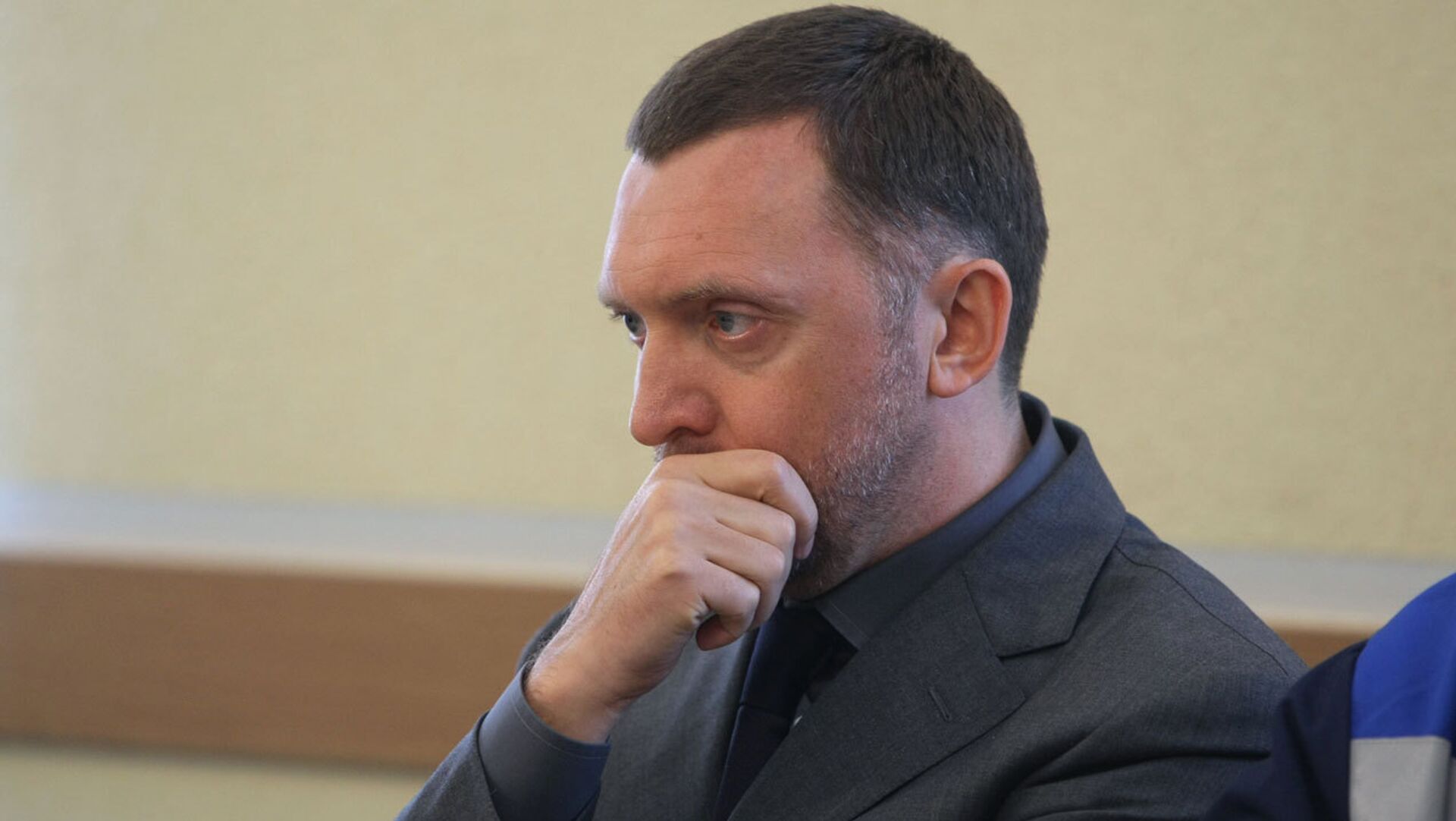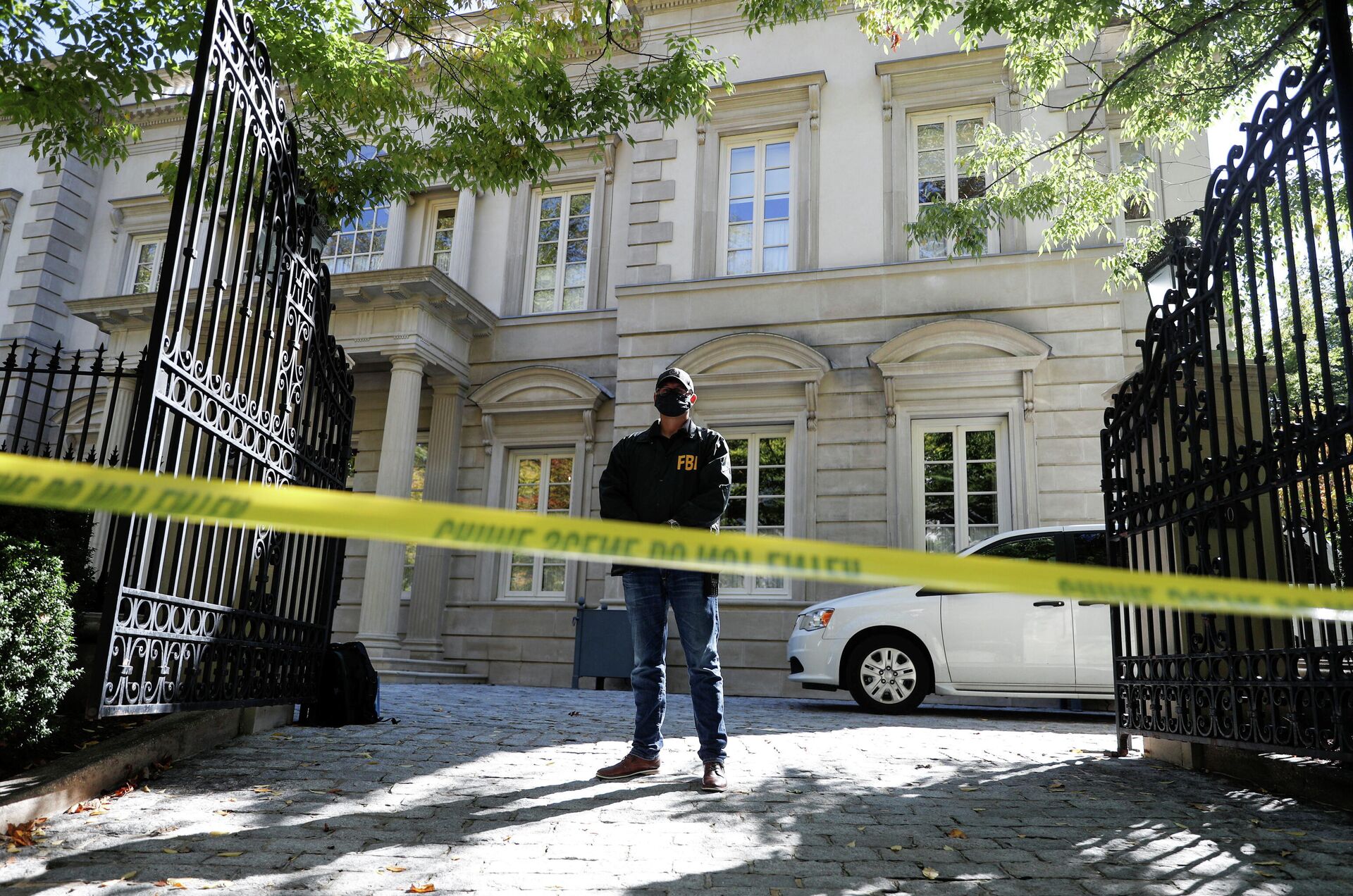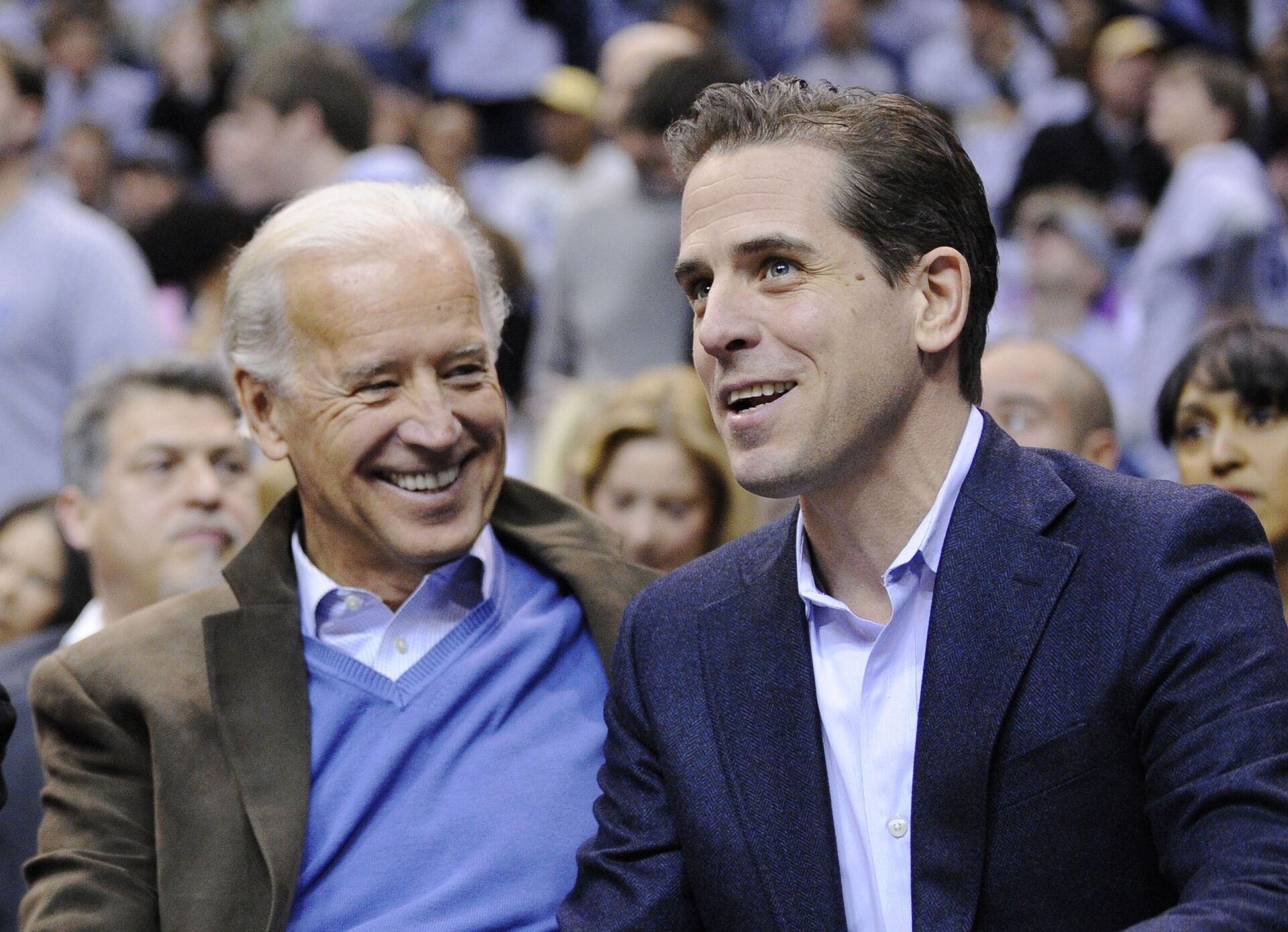‘Sounds a Little Scary’: US Media Calls Deripaska ‘Russian Oligarch’ to Confuse People, Journo Says

© Sputnik / Alexey Nikolskiy
Subscribe
After the FBI raided several houses connected to Russian businessman Oleg Deripaska on Tuesday, the old labels of “oligarch” and “Putin’s buddy” reappeared throughout US media. According to one journalist, it’s part of a bipartisan trend since Russiagate, the sole purpose of which is to demonize Russia by making Russians “sound a little scary.”
It remains unclear what exactly the FBI was looking for, but a spokesperson for the businessman said it was connected to the sanctions against him.
The FBI on Tuesday conducted what it euphemistically called “law enforcement activity” at two homes owned by Deripaska in Washington, DC, and New York. The founder of Russian aluminum corporation Rusal, the world’s second largest producer of the malleable metal, has been sanctioned by the US since 2018 for his alleged connections to Russian President Vladimir Putin.
Those sanctions against him remain, even though those against his companies were dropped after he ceded direct control over those assets to Americans.
“The raid yesterday on a home that Deripaska doesn’t live in, wasn’t at, is something that … was a media stunt,” Lee Stranahan, Sputnik News analyst and host of The Back Story, told Radio Sputnik’s Fault Lines on Wednesday.
“He’s Russian. He’s associated with Vladimir Putin the same way that Tim Cook, from Apple, is associated with Donald Trump. I could show you photos of Tim Cook … sitting at a table with Donald Trump, sitting in the White House with him when Trump was in office. Is he associated with him? Is he a Trump supporter? Is he Trump-linked? Kind of, but not really.”
“In that same way, Vladimir Putin, leader of Russia; Oleg Deripaska, important businessman … that’s about the association,” he added, explaining that it’s “not true” that Deripaska “works directly for Putin,” as some have claimed. “That would be like saying Tim Cook works directly for Donald Trump.”
“The reason he’s called an ‘oligarch’ is because he’s Russian,” he explained about Deripaska. “Actual oligarchs, who ran Russia in the 1990s, before Vladimir Putin came into power, after the fall of the Soviet Union, Russia was run by oligarchs,” he said, noting that some, like Mikhail Khorodokovsky, do actually “have direct connections” to American political leaders like former US President Barack Obama, US President Joe Biden, and the late Senator John McCain (R-AZ).
“They’re not buddies,” he later added, referencing a 2009 incident in which Putin publicly embarrassed Deripaska with a “power play” by making him sign a statement promising to reopen shuttered factories in the economically depressed town of Pikalyovo.

An FBI agent mans his post as the U.S. law enforcement agency conducted a raid at Russian oligarch Oleg Deripaska's home in Washington, U.S., October 19, 2021.
© REUTERS / TOM BRENNER
Deripaska’s No Oligarch
Speaking of the oligarchs, Shanahan said that “these people had taken over businesses that had been [state-owned] under the Soviet Union, and after they’d taken them over, buying them for pennies on the dollar, they were really running things. Those were the oligarchs. And so the purpose of calling Deripaska an oligarch is to confuse people. It sounds a little scary,” he explained, adding that even someone like Amazon founder Jeff Bezos, whose $200 billion net worth is 40 times Deripaska’s, doesn’t exert the kind of power over US politics as Russian oligarchs did.
“This is why Vladimir Putin is very popular in Russia, because under the oligarchs in the 90s, things in Russia were literally a bloody mess,” Stranhan said, adding that Deripaska “didn’t just buy something at bargain-sale prices that used to be part of the Soviet Union, he’s actually built a business.”
The journalist noted that the litany of offenses attributed to Deripaska had no connection to the raids on his houses and aren’t even supposed to have taken place in the United States, making the purpose of the raids all the more obscure.
“The Democrats have used him and the Republicans have used him because ... Russiagate was not about Trump, wasn’t about [Vermont Independent Sen. Bernie] Sanders, wasn’t about Hillary Clinton - Russiagate was essentially about demonizing Russia under Vladmir Putin. That’s what it’s about. And that’s why both sides ultimately demonize Vladimir Putin … everybody goes along with this.”
Hunter Biden Peddles Deripaska Dirt
On top of all this, on Wednesday the New York Post dropped another bombshell: Hunter Biden, the businessman son of US President Joe Biden who was at the center of the Burisma scandal two years ago, also tried to turn a quick buck by selling knowledge about Deripaska’s business empire to an American competitor.
The revelation comes from a forthcoming book by New York Post journalist Miranda Devine called “Laptop From Hell: Hunter Biden, Big Tech, and the Dirty Secrets the President Tried to Hide,” about the extensive contents of the MacBook Biden inadvertently abandoned at a repair shop in 2019.
According to Devine, Biden emailed executives at American aluminum giant Alcoa, which had just penned a two-year supply agreement with the Deripaska-owned aluminum giant Rusal, in the summer of 2011 offering them analysis of “elite networks” connected to Deripaska. In turn, he wanted $25,000 for an initial analysis, and $55,000 for a larger analysis.

Then Vice President Joe Biden, left, and his son Hunter Biden appear at the Duke Georgetown NCAA college basketball game in Washington on Jan. 30, 2010.
© AP Photo / Nick Wass
However, the folks at Alcoa didn’t think the information was worth the price Biden was asking and passed on the offer.
“It is another example of how Hunter Biden was associated with an element of - they’re not all criminals, but they are all very suspect people in these parts of the world. How he was willing to do business with them, knew them,” New York Post journalist Michael Goodwin told Radio Sputnik’s Fault Lines on Thursday.
“This was Hunter Biden’s world, it’s the netherworld, really,” he added, “he was comfortable in it.”
“They were all paying him because his father was vice president at the time. I mean there’s no other explanation why Hunter Biden would have a cache with these people other than he is selling the perception that this person who - ‘if you pay me, Hunter Biden, a hundred thousand dollars, a million dollars, multiple million dollars, you will also be buying the influence of my father,’” Goodwin explained. “That is the unspoken, as far as we know, but the clear implication.”
However, he noted that this case is unusual, because he wasn’t selling his name to foreign nationals, but rather selling knowledge about his foreign contacts to Americans.

